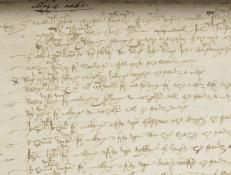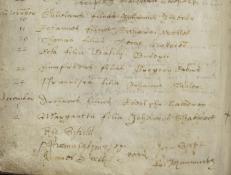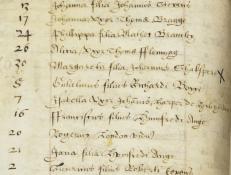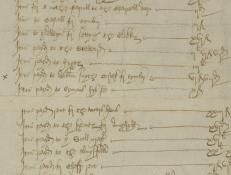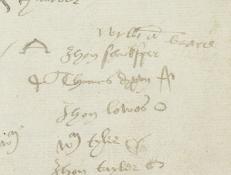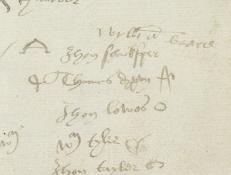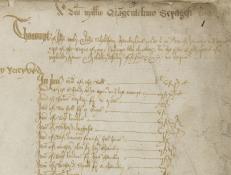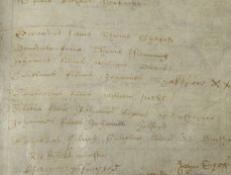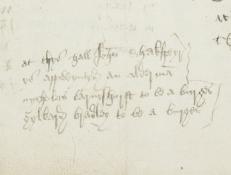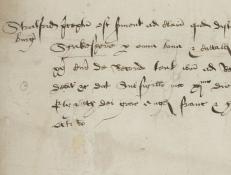To view a sortable list, please visit the Resource
All Documents
May 4, 1561
John Shakespeare was elected as an affeeror, an official appointed to monitor the level of fines imposed at Stratford’s manorial court, for the second time on May 4, 1561, as shown here. The number of affeerors varied, but the borough most commonly appointed four.
December 2, 1562
Margaret, John and Mary Shakespeare’s second child, was baptized on December 2, 1562, according to the Holy Trinity Church parish register. Next to the entry, an “X” added by a later hand highlights its significance.
April 30, 1563
Margaret, John and Mary Shakespeare’s second child, was buried on April 30, 1563, according to the Holy Trinity Church parish register. Next to the entry, an “X” added by a later hand highlights its significance. She was about five months old.
January 24, 1563
John Shakespeare, together with John Taylor, appears to have been elected as a chamberlain of the Stratford-upon-Avon Corporation in the autumn of 1561. Chamberlains kept the Corporation accounts.
September 27, 1564
On September 27, 1564, John Shakespeare was one of ten capital burgesses included in a list of those witnessing an order.
December 20, 1564
The outbreak of plague in July 1564, meant that fewer members of the Corporation attended its subsequent meetings. Attendance reached its lowest point on December 20, shown here, when only 13 were present.
January 10, 1564
The Corporation elected two chamberlains in September or October each year to manage its financial affairs. One chamberlain was responsible for drawing up the account for the following twelve months, while the other checked it.
April 26, 1564
The earliest reference to William Shakespeare appears in the parish register for Holy Trinity Church in an entry for his baptism on April 26, 1564.
July 4, 1565
The Corporation was made up of 14 aldermen, who were named in the town’s 1553 charter of incorporation, and 14 capital burgesses who the aldermen elected to assist them.
September 11, 1566
In late August 1566, a local ironmonger named John Page brought a charge of detinue, or wrongful taking of goods, against Richard Hathaway, a husbandman (a term indicating a farmer of a modest landholding) from nearby Shottery. An undated precept (Minutes and Accounts, ii, p.

